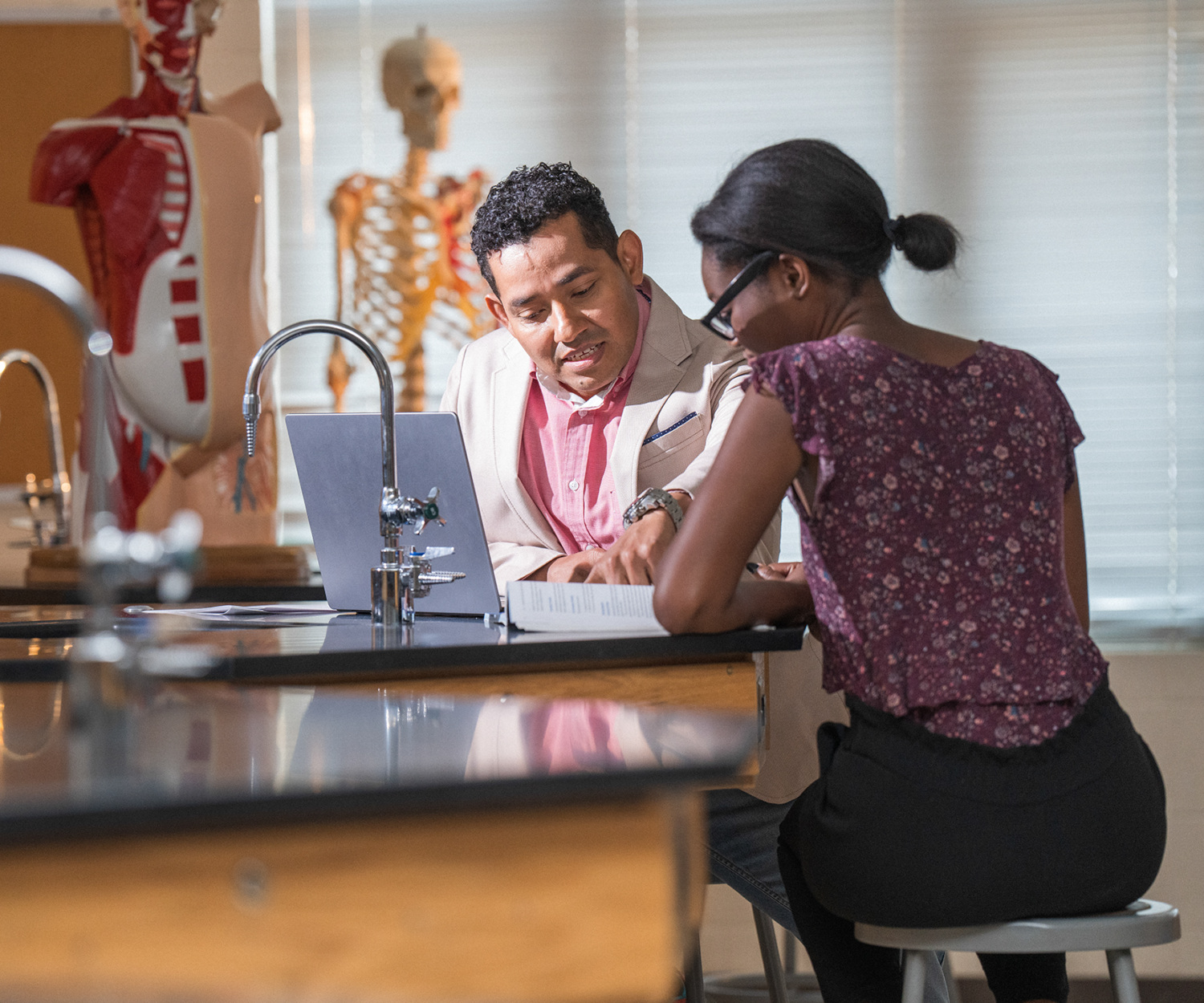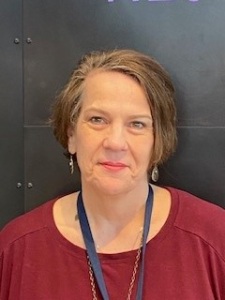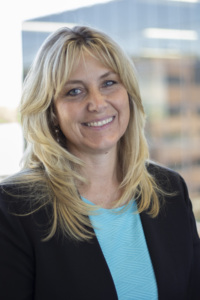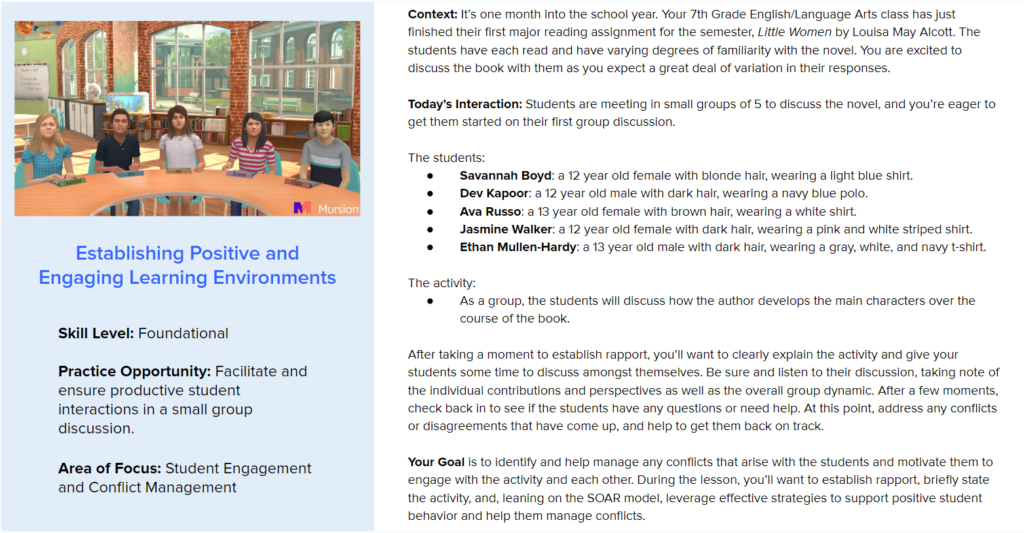
Financial support
To support candidates financially during clinical practice, WGU offers a student teaching scholarship. The scholarships are offered based on candidates’ individual circumstances and typically range from $500 to $3,000.
Observing teachers remotely and applying support as needed
Despite placing over 5,000 candidates across the country, WGU maintains a high standard for observation and feedback: program supervisors observe all candidates six times throughout their experience. The program also holds beginning, mid-term, and end-of-term evaluations that include both the cooperating teacher and the clinical supervisor, and often the principal.
The program achieves this high number of observations by using the software GoReact, which allows candidates to record their lesson or to share it live with their program supervisor.
WGU finds that recording observations has been beneficial.
“Recording the lesson helps the candidate see what the supervisor is commenting on. Candidates may forget what the supervisor is referencing without the video component, so watching it, hearing it, and seeing it can make a difference for candidates.”
Jennifer Doshier, director of field experience
These frequent observations are a key part of the institution’s competency-based approach, in which candidates advance through coursework as they master the content, and those who struggle spend more time in the course and may receive additional support. Until recently, this approach only applied to coursework and not clinical practice, meaning that student teachers who were not successful in their clinical experience had to entirely restart the experience. The program has since extended its competency-based approach into clinical practice.
Candidates can be flagged for additional support in several ways: when program supervisors complete an observation, they can indicate “support needed,” and the cooperating teacher or principal can also raise concerns. When this occurs, candidates are put on an improvement plan and receive additional support, potentially including faculty from WGU visiting the candidate in person. Depending on circumstances, the clinical experience can be paused or, in rare instances, halted altogether until the candidate is back on track.
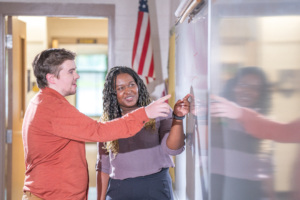 All student teachers are also enrolled in a synchronous course concurrent with student teaching. They meet in groups of 20 candidates to discuss challenges and solve problems under the guidance of a teacher practitioner. When a group of candidates is all completing clinical practice in the same district at the same time, the program tries to bring them together in one seminar course so that they can better support each other.
All student teachers are also enrolled in a synchronous course concurrent with student teaching. They meet in groups of 20 candidates to discuss challenges and solve problems under the guidance of a teacher practitioner. When a group of candidates is all completing clinical practice in the same district at the same time, the program tries to bring them together in one seminar course so that they can better support each other.
Calibrating program supervisors on observation instruments
The program carefully vets and trains all program supervisors (known as clinical supervisors). The hiring process to become a supervisor includes an application, interview process, overview of the training process, and background check.
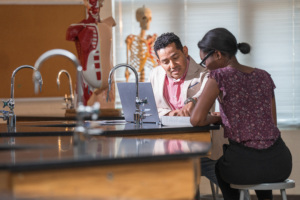 Then supervisors go through several phases of training. The first is the asynchronous WGU training, which introduces supervisors to the university’s model, program requirements, and observation instrument. The next phase is calibration training, when the supervisors learn in depth about the observation instrument and scoring rubric. Next supervisors watch a video of a lesson and rate it based on the observation instrument; if their score is too far from the correct score, WGU’s clinical experience liaison reaches out, reteaches the instrument and offers coaching, and then the program supervisor completes the observation exercise again. Supervisors must pass this task before they can begin to supervise candidates in the field. All supervisors also attend a webinar led by the clinical experience liaisons to describe the requirements of the role and provide opportunities to ask questions. In 2024, WGU began offering office hours throughout the year during which program supervisors can ask questions and receive additional support as needed. The program also offers further support for supervisors and mentor teachers through its support site and monthly newsletters. The program has seen strong attendance and positive feedback.
Then supervisors go through several phases of training. The first is the asynchronous WGU training, which introduces supervisors to the university’s model, program requirements, and observation instrument. The next phase is calibration training, when the supervisors learn in depth about the observation instrument and scoring rubric. Next supervisors watch a video of a lesson and rate it based on the observation instrument; if their score is too far from the correct score, WGU’s clinical experience liaison reaches out, reteaches the instrument and offers coaching, and then the program supervisor completes the observation exercise again. Supervisors must pass this task before they can begin to supervise candidates in the field. All supervisors also attend a webinar led by the clinical experience liaisons to describe the requirements of the role and provide opportunities to ask questions. In 2024, WGU began offering office hours throughout the year during which program supervisors can ask questions and receive additional support as needed. The program also offers further support for supervisors and mentor teachers through its support site and monthly newsletters. The program has seen strong attendance and positive feedback.
Outcomes
WGU collects a wide range of data, especially gathering information from observation ratings during clinical practice. The program also tracks hiring rates and uses a third-party research firm to survey alumni who are hired as teachers (as well as their principals). Principals are asked how satisfied they are with their beginning teachers hired from WGU; in data shared with NCTQ, nearly all teachers (86%) received favorable ratings, and none received negative ratings. School leaders are also asked about their satisfaction with recent graduates from the program in a number of specific areas related to general learning outcomes (e.g., analytical skills), employee traits (e.g., professionalism), and learning outcomes (e.g., exhibiting a mastery of relevant content). The program exceeded its goal (of a 5.5 out of 7 on a likert scale) on every item.
Recently, the program instituted classroom visits to program alumni classrooms. These visits include observations and then meeting with the novice teachers to ask about what’s going well and what they would have changed about their preparation to better prepare them for the classroom.
“It’s been so fun to see our teachers in action and to get feedback on what they did well and what we could have done better. This is a new thing—getting feedback is very helpful. Our goal is to license teachers, but we want teachers to be the best they can be.”Stacey Ludwig Johnson, Senior Vice President, School of Education
The program also makes use of federal data to better understand the districts in which they’re placing candidates. This included analyzing district characteristics through the National Center for Education Statistics.
Advice
- Check whether program supervisors speak multiple languages: Candidates often conduct clinical practice in places where students speak multiple languages and may be multilingual themselves. The program supervisor application form now checks whether supervisors speak languages in addition to English, as multilingual candidates are better able to observe and provide feedback to student teachers who are teaching English learners.
- Take ownership of teachers earning a license: The program found that often candidates would graduate but wait before applying for a license—and sometimes requirements would change in the interim. The program established “clinical coaches” who follow candidates, learn about the licensure requirements in a region, and ensure candidates are taking all necessary steps to earn a license. This includes making sure that candidates get background checks, helping them with content licensure tests, and assisting with any issues that come up.
